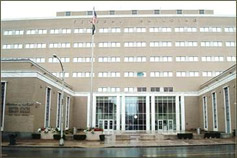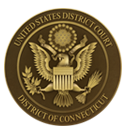United States Magistrate Judge for the District of Connecticut
Staff Information

ABRAHAM RIBICOFF FEDERAL BUILDING
United States Courthouse
450 Main Street - Suite 262
Hartford, Connecticut 06103
Location: East Courtroom
Consent and Reference of a Civil Action to a Magistrate Judge
What is a Magistrate Judge?
